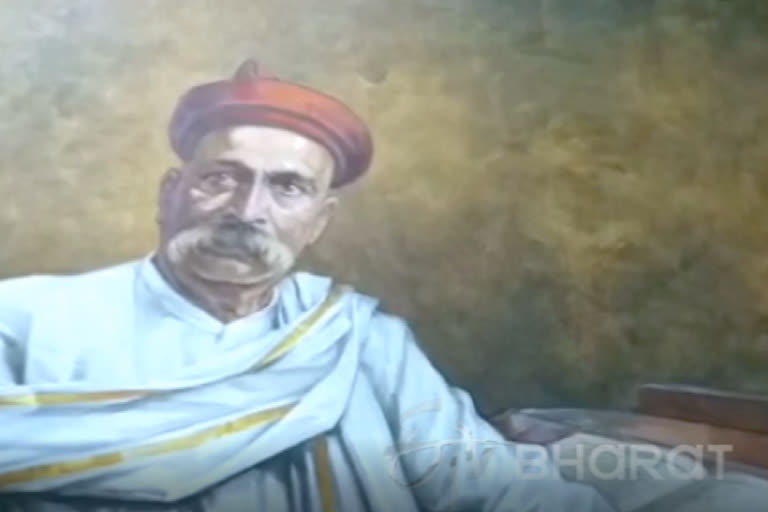Pune: Freedom is my birthright and I will definitely get it: No history-loving Indian can forget this immortal slogan contributed by Lokmanya Bal Gangadhar Tilak to the Independence Movement. One of the biggest radicals of his time, Bal Gangadhar Tilak was very popular among Indians who advocated aggressive methods to gain independence from the British. He proved how words can play a role in challenging establishments and inspiring the masses.
He mainly contributed through his articles published in the Kesari and Mahratta newspapers, which motivated people to take part in the freedom struggle. That's why he was called 'Father of Indian Unrest' by the Britishers. They charged him with sedition and jailed him for writing provocative articles which earned him the title 'Lokmanya' meaning 'accepted leader of the people.'
"Tilak's leadership was widely accepted as he was trying his best to drive the British out of the country," said historian Mohan Shette.
Tilak was born on 23 July 1856 in Ratnagiri district in Maharashtra. In 1866, he came to Pune from Ratnagiri with his parents where he completed his matriculation in 1872. Before that, in 1871, he married Satyabhamabai of Ballal Bal family in Konkan. After matriculation, Tilak graduated from Pune Deccan College in 1876. It was here he met Gopal Ganesh Agarkar and the duo decided to fight together for India's freedom.
Later, in 1881, Tilak and Agarkar started two newspapers, Kesari in English and Mahratta in Marathi. While Agarkar became the first editor of Kesari, Tilak took charge of Mahratta. However, they split due to disagreement over the strategy in their fight against the British, and Tilak took over both the newspapers.
"Tilak wrote 513 articles between 1881 and 1920. His articles in Kesari and Mahratta were well received and he was jailed for criticising the British government. However, he continued his writings against the British government. Tilak was proving the oft-quoted adage 'Pen is mightier than sword' and he effectively used Kesari and Mahratta to turn the people against Britishers," said Shette.
After the first partition of Bengal in 1905, riots broke out all over the country and a violent agitation started. In support of the movement, Tilak put forward four key slogans: Swadeshi, Boycott, National Education and Swarajya. He also started a public Ganeshotsav, with the aim of gathering people against the British.
"Lokmanya Tilak lit the flame of Swarajya across the country. He wrote articles against the British through Kesari and was jailed. Tilak chanted the mantra of Swarajya to bring people together against the colonial forces," said Rohit Tilak, great-grandson of Tilak.
The memory of a spirited freedom fighter like Tilak inspires many even today as we celebrate the 75th anniversary of the country's independence. ETV Bharat pays respects to the fiery leader Lokmanya Tilak who dedicated his life to the country.



